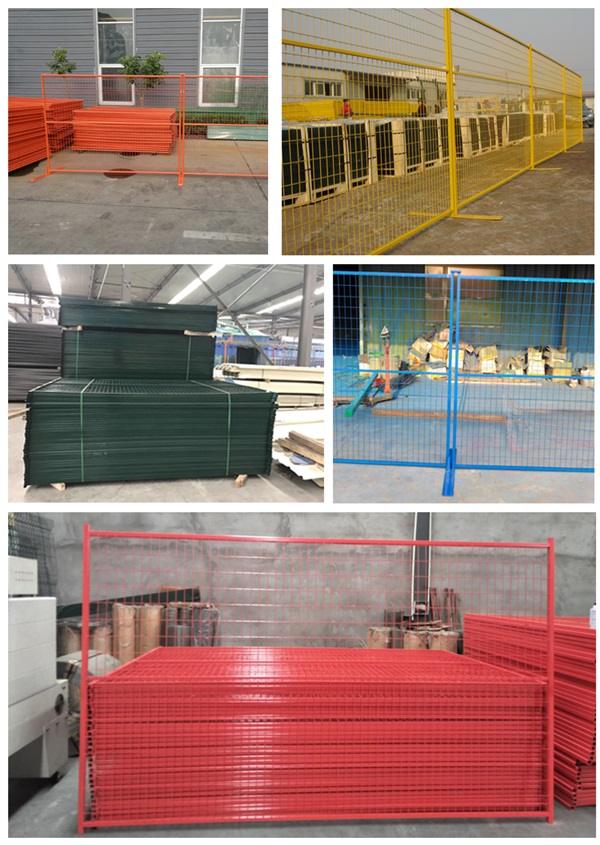Aug . 03, 2024 02:41 Back to list
Innovative Applications and Benefits of Expanded Mesh Metal in Modern Construction and Design
The Versatility and Applications of Expanded Mesh Metal
Expanded mesh metal, also known as expanded metal or expanded mesh, is a unique and versatile material that has gained popularity across various industries due to its strength, durability, and distinct aesthetic appeal. This product is created by taking a sheet of metal and slitting and expanding it in a way that results in a network of interconnected strands, creating diamond-shaped openings. The result is a lightweight yet robust structure that offers numerous advantages over traditional solid sheets of metal.
One of the most prominent features of expanded mesh metal is its ability to provide excellent ventilation and visibility while maintaining structural integrity. This characteristic makes it an ideal choice for applications that require air flow or light passage. For example, in architectural applications, expanded mesh is often used in facades to create visually stunning and functional surfaces that allow natural light to filter through while providing privacy and protection. Additionally, its unique appearance can add a modern touch to building designs.
In the industrial sector, expanded mesh metal is widely utilized for safety and security
. It is often employed as a protective barrier or fencing in various environments, including warehouses, construction sites, and industrial facilities. The mesh structure makes it difficult for unauthorized access while still allowing visibility and air circulation, which is particularly important in areas where equipment and machinery are in operation. Furthermore, expanded mesh can be utilized as walkways or platforms, offering a safe surface that minimizes the risk of slips and falls.expanded mesh metal

Another significant application of expanded mesh metal is in the production of filters and screens. The precise geometry of the mesh allows it to effectively trap particles while enabling fluid or air passage, making it essential in industries such as food processing, chemical manufacturing, and water treatment. For instance, expanded metal filters can be found in systems designed to purify water or air, ensuring that contaminants are captured without obstructing the flow of essential resources.
In addition to its functional benefits, expanded mesh metal is also appreciated for its customization capabilities. Available in a variety of materials, including aluminum, steel, and stainless steel, it can be tailored to meet specific requirements in terms of size, thickness, and opening patterns. This flexibility allows designers and engineers to create solutions that are not only effective but also visually appealing. The ability to powder-coat, paint, or finish expanded mesh further enhances its aesthetic properties, enabling it to complement diverse architectural styles.
Sustainability is another important consideration in today’s manufacturing landscape. Expanded mesh metal is often regarded as an eco-friendly option due to its efficient use of material; the expansion process creates a product that uses less metal than solid sheets while maintaining comparable strength. Additionally, many types of expanded mesh can be recycled at the end of their lifecycle, contributing to a more sustainable approach to manufacturing and material use.
In conclusion, expanded mesh metal is a remarkable material that combines functionality and aesthetics, making it suitable for a wide range of applications across various industries. From architectural design to safety and filtration, its versatility is unmatched. As industries continue to seek innovative solutions for their challenges, expanded mesh metal will undoubtedly play an increasingly vital role in creating efficient, safe, and visually appealing environments. With its unique properties and sustainable advantages, expanded mesh metal stands out as a key player in the future of materials engineering.
-
Durable Hot-Dip Galvanized Farm Field Wire Fence | Farm Security
NewsAug.01,2025
-
Temporary Fencing Solutions-Anping County Xingzhi Metal Wiremesh Products Co.,Ltd
NewsJul.31,2025
-
Hop Dipped Galvanized / PVC Coated Temporary Fence - Anping County Xingzhi Metal Wiremesh Products Co., Ltd.|Durable Temporary Fencing&Cost-Effective Security Solutions
NewsJul.31,2025
-
Hop Dipped Galvanized / PVC Coated Temporary Fence-Anping County Xingzhi Metal Wiremesh Products Co., Ltd|durable temporary fencing&corrosion-resistant solutions
NewsJul.31,2025
-
Temporary Fencing Solutions - Anping County Xingzhi Metal | Galvanized PVC Coated Fences
NewsJul.31,2025
-
358 Anti-Climb Welded Wire Mesh Fence - High Security, Durable
NewsJul.31,2025



